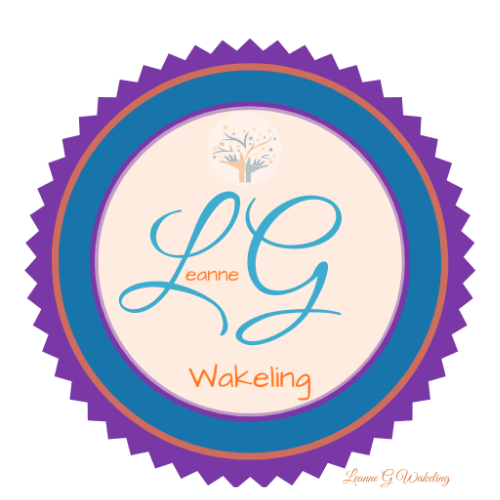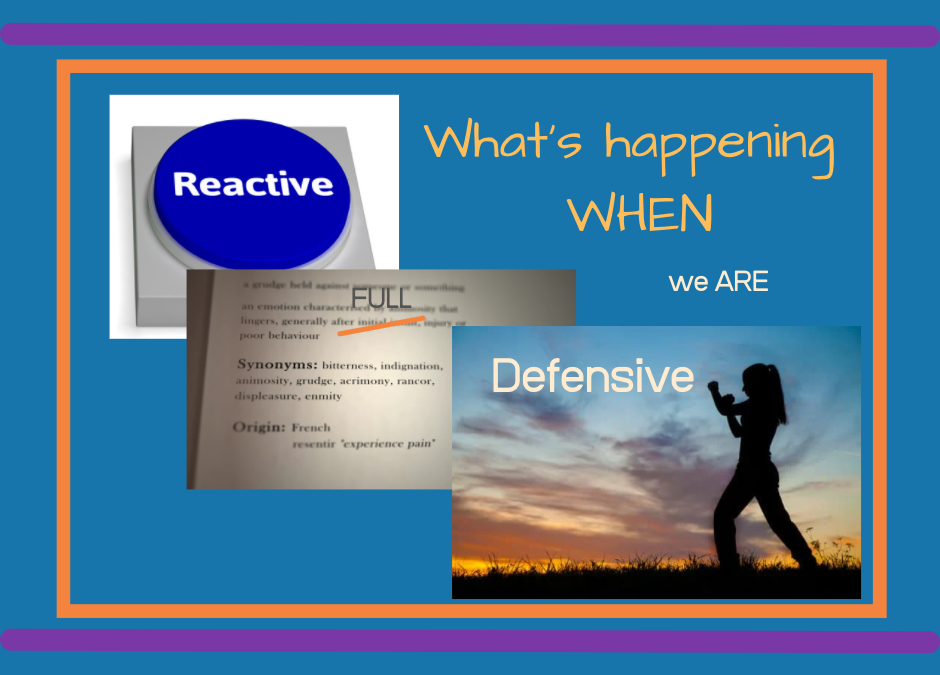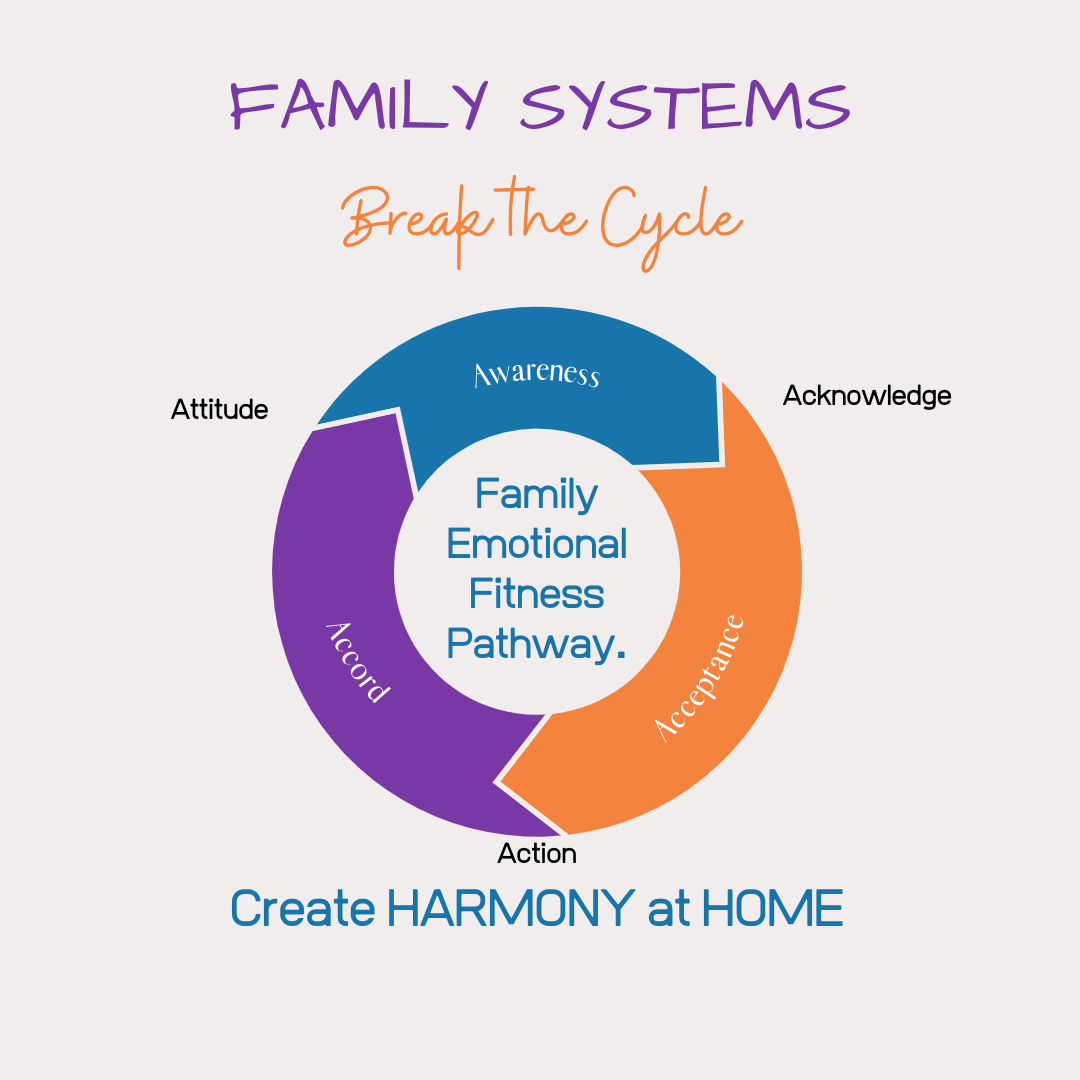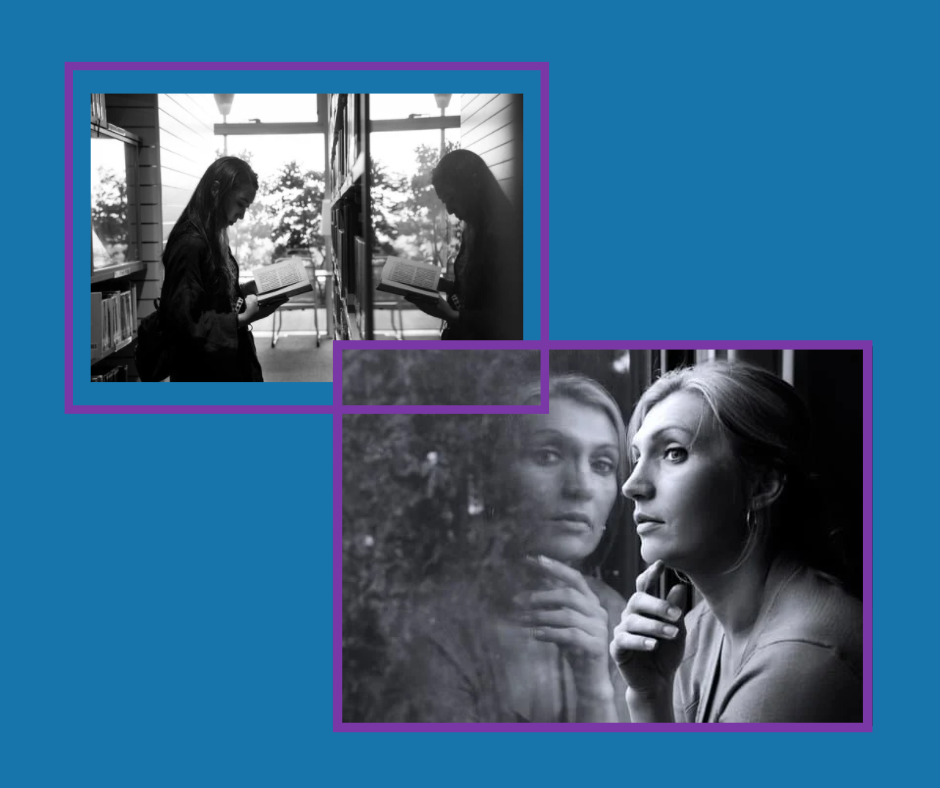Reactive/Resentful/Defensive is a common issue that comes up in families. It’s certainly something that I now appreciate was amongst the drivers behind my reactivity.
What’s important to appreciate is that when anyone seems to react at you, that it isn’t about you. What that means is, when we are in reaction, resentment or defensiveness (RRD), we are in survival mode and that’s about us, ie the person who is DOing the behaviour.
The opportunity is to accept that in that moment, they, the person in front of you is not coping with what is being said to them.
Often what I notice is that reactivity leads to resentment, leads to defensiveness, and we end up in a negative reinforcement loop.
BREAK THE CYCLE
The tough thing is “someone” needs to break the cycle. The problem is lots of the time no one either wants to or knows how to. It takes courage to break the cycle because it means taking a step back and reflecting on what is going on.
Amongst the biggest challenges is to accept that RRD might feel like a threat, and the opportunity is to avoid taking things personally, because survival responses are personal to us, not about the other person (even when we are the other person).
Be compassionate to both self and “the other” because it also takes practice IF breaking the cycle is not a habit yet.
NB – The standards of outcome are also different for whether the “other” is a child or an adult. This is because it is NOT a child’s responsibility to look out for our feelings. Though, through our compassionate modelling and guidance we trust they will develop the skills.
When the “other” is an adult, its appreciating that for the most part when RRD happens, it’s their inner child in charge.
Our responsibility is to support both adult/child with understanding the healthy boundary. Not judging them for their poor behaviour. Though also not free passing either (as long as that is safe – you’ll know who is and isn’t safe). Particularly with adults, safe not meaning easy, but not a physical threat to your wellbeing if you were to enact your boundaries.
REFLECTION
When you take the time to reflect on a time when you experienced doing RRD yourself, you will probably notice that it’s all about protection of self. This is normal, it’s that we’ve moved out of working the problem that needs to be solved, and the person has become the object of our response/reaction.
If you’ve been like me, when I first started down this path to “new me” empowering my ultimate self, that “backing down” was really uncomfortable. I’d had years of experience in justifying and defending. The thing is, that like a new pair of shoes, changing the old familiar response can feel a little uncomfortable for a while.
It doesn’t have to be difficult. It does require doing things differently. And as the saying from Einstein goes – Do the same thing and expect a different result is called INSANITY.
The issue for humans is that we are designed to seek the familiar, so when we leave ourselves on automatic, chances are we’ll repeat our usual pattern.
It takes choosing conscious awareness and taking intentional action to change our behaviour.
CREATING HARMONY
If we want harmony in our relationships, it’s coming to terms with what is most important.
Most frequently the challenge to overcome is “We want to be right”. Hence we respond with righteous indignation which drives the RRD.
OR, we can focus on be happy?
Not doormat, not acquiescing for the sake of peace but working through the issue to an ecological conclusion.
Ecological being good for you, good for them and good for the greater good.
Ecological is the gold standard for building healthy harmonious relationships.
Ecological takes effort and conscious action, otherwise our programming will get us everytime.
Working the problem, not taking things personally, not focusing on the person. Instead focusing on the behaviour.
If becoming more open and wholehearted is on your path, then come join us in
Conscious Wholehearted Parents
where we are working to become the best version of ourselves so that we become the parent we wished we had as a child.



